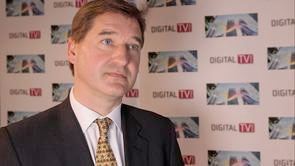
After more than 40 years of operation, DTVE is closing its doors and our website will no longer be updated daily. Thank you for all of your support.
Cable Congress: cable’s cash-generation power winning investor approval
The cable industry is continuing to win the support of financial investors thanks to its ability to generate cash-flow, according to a panel of speakers at Cable Congress yesterday.
Cable has outperformed telcos in European stock markets thanks to its growth story and ability to generate cash by investing in its business, according to Frank Knowles, partner at New Street Research, who moderated the panel session, which closed this year’s Congress.
Clif Marriott, MD at Goldman Sachs International, speaking on the session, said that capital markets valued cash generation above growth and investments. He said that Sweden’s Com Hem is one of the highest-valued operators because of its strong free cash-flow generation. However, he said the operator had also benefited from its investment in broadband capacity.
Marriott said that cable operators’ strategy would vary according to the specific market conditions in which they found themselves.
“My takeaway…is it depends on the market. In Sweden it makes sense to be the leader in broadband. If you go to somewhere like Belgium, Telenet has done an amazing job in becoming a mobile operator and has increased guidance and delivered synergy potential. They have also invested in content and created an OTT service that can compete with Netflix down the road.”
He said that investing in broadband network capacity, looking at mobile and content to future proof the business, and expanding network coverage to new areas had all proved efficacious.
Marriott said that pay TV for European cable operators was holding up well in general, although the mix was changing. He said the cost of TV services was vastly greater in the US than in Europe, meaning that there is more desire on the part of US consumers to cut costs. “There are a lot of people offering the skinny bundle [in the US].”
On the mobile side, Marriott said that 5G would take a lot of network investment, and that operators would need a regulatory environment that will justify the investment. Marriott said he expected more consolidation and that the distinction between fixed and mobile operators would probably disappear in a few years’ time.
Andrew Barron, chairman of Com Hem, also speaking on the panel, said that his company looked to use its balance sheet to “cash regenerate”, for example by buying digital-terrestrial pay TV service provider Boxer and getting into the B2B market. He said the goal of investments was to raise EBITDA and underlying cash flow.
Barron said that while in the US there was vertical integration going on between infrastructure companies and content companies, this hadn’t happened in Europe, which was on the other hand ahead in integration of fixed-line and mobile operators.
Manuel Kohnstamm, chief corporate affairs officer, Liberty Global, said that Liberty looked get a return on investments by focusing on improving the consumer experience and targeting areas for new build.
“We invest in the user experience and in the content around it and we invest in speed and capacity. On the network side, the upgrades in Europe have largely been done on the fixed side and we have allocated quite a bit of capital to new build,” he said.
“The economics have changed. ARPUs are higher, Technology has also changed and you can build at lower cost using things like micro trenching. We also look opportunistically at consolidation.”




